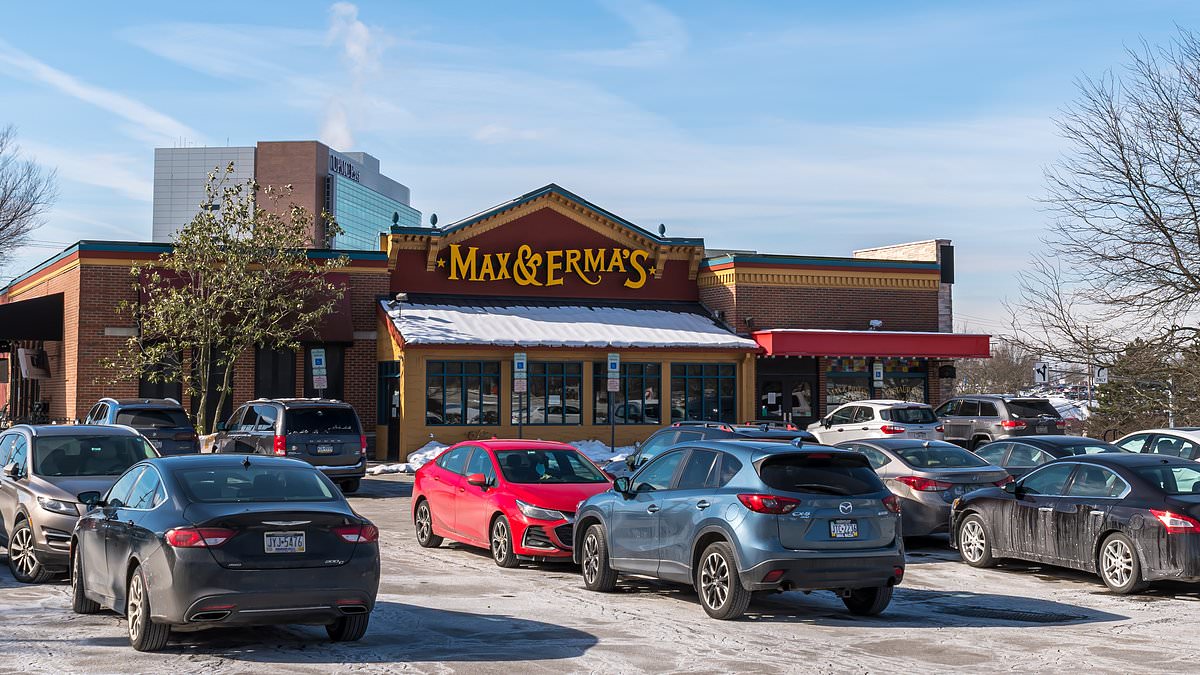An award-winning food critic revealed the best tricks to help you choose where to enjoy a pleasant dining experience – with some tricks you can deploy before even entering the restaurant.
Tom Sietsema, who won an award for his series ’10 Best Food Cities in America’ in 2015 by the James Beard Foundation, has revealed the most efficient way to recognize a delectable dining spot.
In his latest Washington Post article, the seasoned diner revealed his failsafe ways of vetting restaurants before requesting a table, including…
1. License plates and the type of car in the parking lot…

Food critic Tom Sietsema says that the most foolproof way of recognizing whether an eatery would serve good food is by checking the cars parked right outside the door
Sietsema says that the most foolproof way of recognizing whether an eatery will serve good food is by checking the cars parked right outside the door.
If most of them have in-state license plates, it means the restaurant is popular with locals – usually a sign that it’s good.
Conversely, if you see a lot of coaches outside – it could be a sign the restaurant is a tourist trap whose standards will be lower because they are blessed with so much passing trade.
He also said a mix of expensive and cheaper cars in the lot further suggests the establishment is a good one, if both the rich and less wealthy are lining up to eat there.
2. Size of the menus
Not every restaurant has a parking lot, so there are other ways of rooting out the bad ones. If a dining place does not have a parking lot, Sietsema suggests inspecting whether they have huge menus on display outside.
According to the critic, any place with menus that have lots of typos, exclamation marks or point out that a dish is ‘cooked to perfection’ can be unsafe to eat.
He also advises against restaurants whose food options span all four corners of the globe and suggests that a smaller, more focused menu is usually indicative of better food.

According to the critic, any place with menus that have lots of typos, exclamation marks or point out that a dish is ‘cooked to perfection’ can be unsafe to eat
3. The eatery’s aroma
If a restaurant passes the parking lot and menu check, Sietsema advises diners to try to smell the air of the place.
He said a steakhouse should smell like beef, an Italian should have the scent of garlic in the air and that a Korean restaurant should have a tingle of chili in its atmosphere.
Sietsema warns that no smell at all – or worse still, the smell of bleach – may be a warning that the restaurant is not worth your custom.

‘A blank smell — or sometimes worse, a blast of bleach or ammonia from cleaning products — should send you back onto the sidewalk,’ he suggested.
4. First impressions
Calling in to book a table and being received by a rude employee? Chances are that you’ll also receive terrible in-person service.
He did caveat this advice by saying that calling a restaurant at a busy time is more likely to result in an interaction with a harried staff member.
Sietsema also noted that if website fails to list prices on its website or promotes holidays that have already passed, it suggests a certain shoddiness.
He also cautioned against restaurants with attractive servers on the street holding menus and trying to lure you in, saying a decent restaurant does not need such ‘baubles.’
5. Happy servers and a busy kitchen

Sietsema also noted that if website fails to list prices or continues to post its holiday specials in another season, the restaurant is ‘asleep at the switch’
If you see a bunch of happy servers and bustling kitchen filled with people when you enter a restaurant, it’s likely a good sign.
As Sietsema explains: ‘Inside a place, look for servers who appear happy (proud to work there) and some bustle (diners willing to wait for a table).
‘You want to see a busy counter and lots of turnover.’
6. How old are the online reviews?

ast but not least, one of the most important things to keep an eye on is how clean an eatery is – particularly its countertops, floors and the chef’s clothes.
While searching online for reviews on new places, check to see how when they were posted.
According to Sietsema, reviews only a year old count as accurate descriptions since ‘restaurants are like live theater, with the possibility of changing casts and scripts’.
That means a place reviewed well a year or two ago may have slipped since, while somewhere that scored poorly in the past may have gotten its act together and improved,
7. Cleanliness
Last but not least, one of the most important things to keep an eye on is how clean an eatery is – particularly its countertops, floors and the chef’s clothes.
